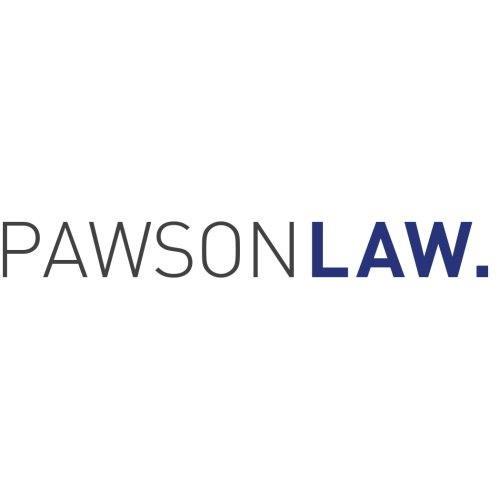Best Job Discrimination Lawyers in New Zealand
Share your needs with us, get contacted by law firms.
Free. Takes 2 min.
Or refine your search by selecting a city:
List of the best lawyers in New Zealand
About Job Discrimination Law in New Zealand
Job discrimination in New Zealand is governed by a comprehensive legal framework that aims to ensure equal treatment in the workplace. Under the Human Rights Act 1993 and the Employment Relations Act 2000, New Zealand employers are prohibited from discriminating against employees or potential employees based on grounds such as race, gender, age, disability, sexual orientation, marital status, religious beliefs, and more. The primary goal of these laws is to promote fairness and equality in all employment-related matters, ensuring that decisions are made based on merit rather than personal characteristics.
Why You May Need a Lawyer
There are several situations where individuals might require legal assistance regarding job discrimination:
- Facing Unfair Treatment: If you believe you're being treated unfairly in your workplace due to your personal characteristics, seeking legal advice can help you understand your rights and options.
- Unjust Termination or Demotion: If you suspect that your termination or demotion was due to discriminatory reasons, a lawyer can assist in assessing the situation and pursuing appropriate remedies.
- Harassment or Bullying: In cases where discriminatory harassment or bullying occurs, legal guidance might be necessary to address the issue effectively.
- Disciplinary Actions: If you are subjected to disciplinary actions that you believe are discriminatory, a legal professional can help navigate the situation.
- Workplace Accommodation: If you need reasonable accommodations due to a disability or religious beliefs and face resistance, legal advice might be beneficial.
Local Laws Overview
Key aspects of job discrimination laws in New Zealand include:
- Prohibited Grounds of Discrimination: The Human Rights Act lists various grounds where discrimination is forbidden, including race, gender, age, disability, marital status, ethical beliefs, and more.
- Obligation to Accommodate: Employers must make reasonable accommodations for employees with disabilities or those requiring accommodation for religious practices, as long as it doesn't cause undue hardship.
- Resolution Processes: Discrimination complaints can typically be handled through internal workplace procedures, mediation, or by lodging a complaint with the Human Rights Commission.
- Dispute Resolution: The Employment Relations Authority (ERA) and Employment Court are the judicial bodies that deal with employment disputes, including discrimination claims.
Frequently Asked Questions
1. What constitutes job discrimination in New Zealand?
Job discrimination occurs when an employee or job applicant is treated unfairly based on prohibited grounds including race, age, gender, disability, etc.
2. How can I prove job discrimination?
Proving job discrimination typically involves showing that the treatment was different for others in similar positions and related to one of the prohibited discriminatory grounds.
3. What should I do if I experience discrimination at work?
Document the incidents, seek advice from a trusted advisor or lawyer, and consider raising the issue with your employer through formal internal procedures or lodging a complaint.
4. Can I pursue a discrimination claim after leaving my job?
Yes, you can file a discrimination claim within 90 days of the discrimination act or a court may allow a claim to be lodged later if there’s a justified reason for the delay.
5. Are job discrimination laws applicable to all employers in New Zealand?
Yes, all employers must comply with job discrimination laws. This applies to both public and private sector organizations.
6. What legal remedies are available for job discrimination in New Zealand?
Remedies can include compensation for lost wages, reinstatement, or changes in workplace practices. The specific remedy depends on the case and the outcomes of mediation or court rulings.
7. Is workplace bullying considered a form of discrimination?
If bullying targets personal characteristics protected under discrimination laws, it may be considered a form of discrimination.
8. How effective is mediation in resolving job discrimination disputes?
Mediation is often a useful first step in resolving disputes as it allows both parties to discuss the issue with a neutral third party to reach a mutually acceptable solution.
9. Can I be fired for filing a discrimination complaint?
No, it is unlawful for an employer to retaliate against you for filing a claim. If this occurs, it could constitute further legal breaches.
10. Where can I find more information about my rights under New Zealand's job discrimination laws?
The Human Rights Commission and the Ministry of Business, Innovation and Employment (MBIE) provide extensive resources and guidance on understanding your rights.
Additional Resources
For more information and support, consider reaching out to the following resources:
- Human Rights Commission: Offers advice and assistance to individuals facing discrimination.
- Employment New Zealand (MBIE): Provides information on employment rights and employment relations.
- Community Law Centres: Offer free legal advice and support regarding employment issues.
- Citizens Advice Bureau (CAB): Provides advice and assistance on various matters, including employment issues.
Next Steps
If you believe you have experienced job discrimination and require legal assistance, consider taking the following steps:
- Document Everything: Keep a record of all incidents, conversations, and relevant documents pertaining to the discrimination.
- Seek Legal Advice: Contact a lawyer experienced in employment law to assess your case and guide you through your options.
- Use Available Resources: Reach out to organizations such as the Human Rights Commission for advice and support.
- Consider Resolution Options: Depending on the situation, explore mediation, lodging a complaint, or other legal avenues.
Remember, everyone is entitled to fair treatment in the workplace, and understanding your rights is the first step in addressing any form of job discrimination.
Lawzana helps you find the best lawyers and law firms in New Zealand through a curated and pre-screened list of qualified legal professionals. Our platform offers rankings and detailed profiles of attorneys and law firms, allowing you to compare based on practice areas, including Job Discrimination, experience, and client feedback.
Each profile includes a description of the firm's areas of practice, client reviews, team members and partners, year of establishment, spoken languages, office locations, contact information, social media presence, and any published articles or resources. Most firms on our platform speak English and are experienced in both local and international legal matters.
Get a quote from top-rated law firms in New Zealand — quickly, securely, and without unnecessary hassle.
Disclaimer:
The information provided on this page is for general informational purposes only and does not constitute legal advice. While we strive to ensure the accuracy and relevance of the content, legal information may change over time, and interpretations of the law can vary. You should always consult with a qualified legal professional for advice specific to your situation.
We disclaim all liability for actions taken or not taken based on the content of this page. If you believe any information is incorrect or outdated, please contact us, and we will review and update it where appropriate.
Browse job discrimination law firms by city in New Zealand
Refine your search by selecting a city.

















